Fortnite parents’ guide for those who think their child is an addict
Do you know if your child is addicted to Fortnite? Experts say there are warning signs to look for and ways to stop it becoming a dangerous obsession. See expert tips in this guide for parents.

Gaming
Don't miss out on the headlines from Gaming. Followed categories will be added to My News.
His whole family was devastated.
After meticulously planning one big Easter getaway for the entire extended clan, a 10-year-old boy chose not to attend. He told them he would “rather stay home and play Fortnite”.
According to McAfee online safety advocate and “cyber mum” Alex Merton-McCann, the case she dealt with was “not an unusual story” and parents should to be on the look out for symptoms gameplay had gone too far.
“There’s a new wave of parents who are now pulling their hair out over Fortnite,” she said. “Nothing has changed except the batch of children playing the game.”
MORE: Shocking truth about what Fortnite does to your kids
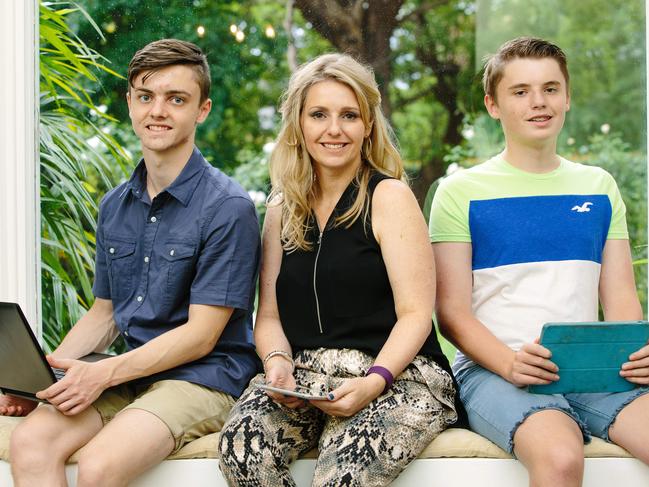
Ms Merton-McCann said gaming addiction was an emotive subject but parents of children in their early teens should pay attention to how often children spent playing video games and how it affected the rest of their lives.
“When relationships become difficult to manage, when there’s tensions in the house, they’re not getting their homework done, and they’d rather use a screen than attend a family event, alarm bells should be ringing very loudly,” she said.
Dr Joanne Orlando, a researcher from Western Sydney University, said video game addiction was not a passing phase but one that had devastating consequences on other parts of a child’s life, and parents should look for signs of wide-ranging effects.
“With gaming disorder, it’s an increasing obsession with playing the game that continues even though other elements of their lives are falling down around them, like they’re not playing with friends any more, and their grades at school are falling,“ she said. “It’s not something that just happens during school holidays and then they return to normal.”
Parents who noticed warning signs in their children should not only set and maintain stricter rules around screen time, Dr Orlando said, but make practical changes, such as moving technology from bedrooms to shared rooms, organising visits from friends, or investigating team sports.
“It’s all about seeing where the gap is in their lives and doing a bit of lateral thinking about what else they can do to help them get what he or she needs,” she said.
Finder.com.au tech expert Alex Kidman also recommended parents carefully check the age recommendations on games before allowing their children to play them.
A recent Finder study of more than 2000 parents found two in five did not know how to check the classification of a digital game.
“If you wouldn’t let your kids watch an R-rated movie, you shouldn’t let them play a game with the same rating,” Mr Kidman said.
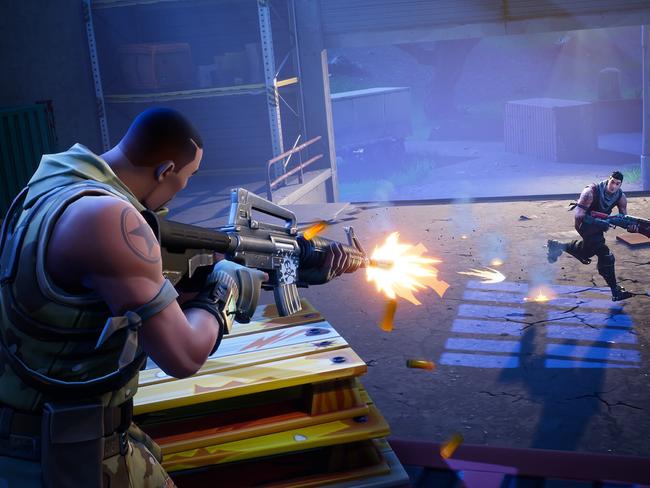
Ms Merton-McCann said parents could also sit down with their children “when everyone is calm”and create “family digital contracts” for screen time.
“It can cover how much time your child is allowed to play online per week, what they can play, the devices they can play on, and it can also cover what they can share online,” she said. “It’s the best way to get the issue sorted, and do it in consultation with kids.”
But neuroscience communicator Jill Sweatman, known as “the brain whisperer,” warned parents shouldn’t let children dictate rules around screen time, as it was their job to ensure their children were protected from behaviour that could harm their cognitive functions and limit their growth.
“In the discussion around how much game time is too much, it is still the parent who has to make the decision,” she said.
“The primary responsibility of a parent is to be a parent, not a friend.”
HOW TO BEAT FORTNITE ADDICTION
— Draw up a family contract to outline screen time rules, discuss them, listen to feedback, and have both parties sign
— Stick to the rules every day — don’t let them slide when inconvenient
— Set up parental controls on individual devices or the family wi-fi router to limit game play outside the rules
— Ban devices from children’s bedrooms, including laptops, smartphones, and game consoles
— Respect age ratings on video games, such as Fortnite’s 12 years+ guideline
— Play your child’s favourite video game with them so you have a better understanding of the risks and their interests
— Provide a good example for your children by maintaining healthy use of your devices
— Seek expert advice if your child’s video game play becomes excessive and harms relationships with family and friends, and their academic performance
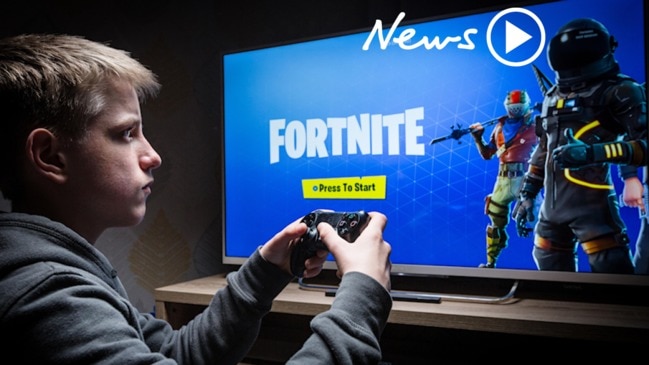
PARENTS’ GUIDE TO FORTNITE: HOW IT WORKS
What is this game about?
Fortnite: Battle Royale is a fast-paced, cartoon-style action survival game.
Short battles take place between 100 players, and the goal is to be the last avatar standing.
Players are dropped on to an island battlefield from a flying bus and, to win, they must build refuges, hide, strategise, and assassinate other players.
Child psychiatrist Dr Huu Kim Le says the game is built “just like a poker machine” as luck plays a big role in determining the winner and players “believe if they’ve won once, they can do it again”. This helps keep even casual players hooked on Fortnite, he says, along with the potentially low cost of playing, and constantly updating virtual store.
How much does it cost?
This game is free to download and play, and it can be played on most devices, from games consoles Xbox One, PlayStation 4, and Nintendo Switch, to Apple and Google Android-based tablets and smartphones. You can even play it on Windows PCs and Macs.
But Fortnite is not entirely free. Users can buy extras within the game to personalise their character’s look, dance moves, or weapons.
In-game purchases in Australia soared by 190 per cent this year, according to Telsyte, and managing director Foad Fadaghi says the trend was “driven by Fortnite, which continues to be a social phenomenon”.
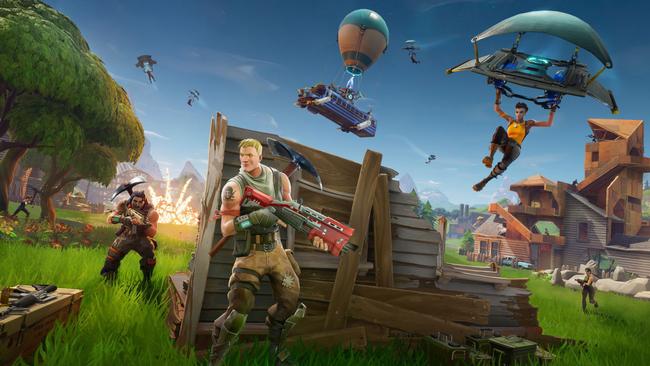
What terms do I need to know?
Fortnite: Battle Royale has its own language and many relate to purchases within the game.
Those purchases can be made with Fortnite currency, called V-Bucks, and they include emotes, skins, and Battle Passes.
Emotes are simply dance moves or gestures your character can perform in the game, while skins dictate the look of your avatar. If you don’t purchase one, you are randomly assigned a look each game you play.
Players can also purchase Battle Passes which unlock new tiers within the game and new items.
How old should you be to play Fortnite: Battle Royale?
In Australia, the original Fortnite game for consoles received an M rating but the Battle Royale is recommended for players aged 12 and over.
Both non-profit family advocacy group Common Sense Media and neuroscience expert Jill Sweatman recommends parents hold off until the age of 13, however, due to its violent content.
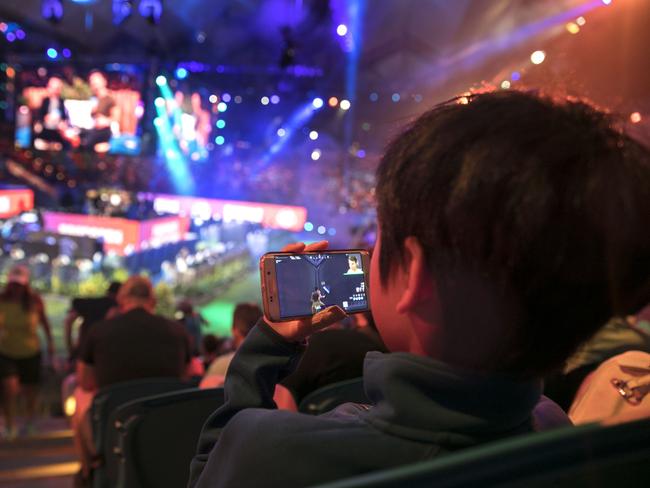
Why is this game so popular with kids?
Peer pressure to play Fortnite is enormous, experts attest, and starts at primary school.
Cyber safety educator Leonie Smith says other big factors in the game’s success with kids are its free entry price and quirky, humorous, cartoon style.
“It’s the blood and the gore and the realism that parents don’t like in games,” she says. “Fortnite looks very palatable to parents. It looks like Alice in Wonderland, all these beautiful bright colours and characters running around.”
What dangers should I be aware of?
There are several potential hazards for children playing Fortnite.
Psychologists warn parents to pay close attention to how much time children are investing in the game, and whether play is affecting family, social, and school life.
Parents also need to be vigilant about how much kids spend on in-game purchases, and whether schoolyard bullies or unknown adults are speaking to their children. There is no in-game chat available in Fortnite mobile apps.
And some neuroscience experts argue young children should not be playing the game at all, warning that early exposure and extended sessions with the game can “impair learning”.
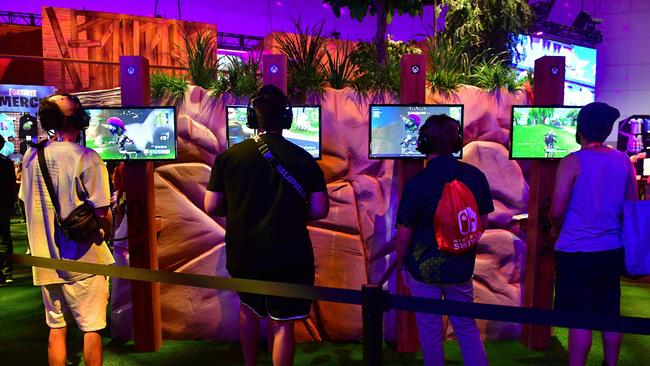
INTERNET ADDICTION DETOX CLINICS HELP WITH FORTNITE
To meet the needs of desperate parents and addicted children, a growing number of Australian medical professionals and treatment centres are dedicating themselves to treat gaming disorders.
Treatment options range from mental health clinics to psychologists and child psychiatrists, as well as detox centres.
Child psychiatrist Dr Philip Tam said parents who recognise the symptoms of gaming disorder should first seek help from a psychologist as the addiction could be a symptom of another problem, such as family issues, attention deficit and hyperactivity disorder, or Asperger’s syndrome.
“You have to treat the underlying mental health problem and not just the internet or game problem,” he said. “You have to look at their sleeping patterns, their physical health and their diet. You need to take a holistic approach.”
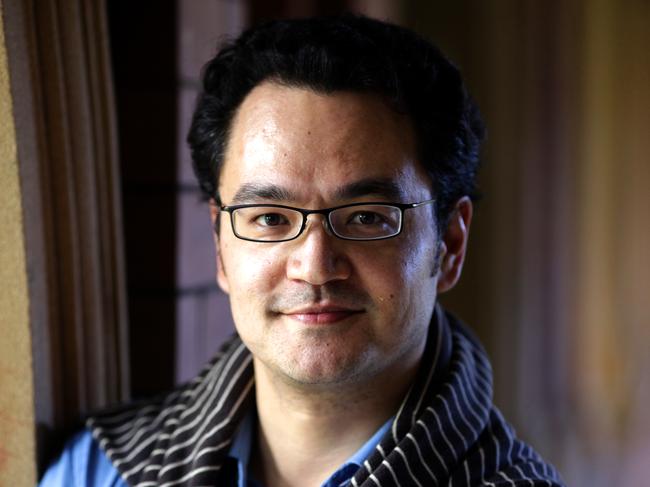
But Dr Lam said he had also referred patients with extreme gaming addictions to rehabilitation and detox centres to physically separate children from temptation.
“If a family has tried every other method, they could try detox,” he said.
“A three-week detox is not going to treat the underlying problem, though, which could take six months of therapy.”
Centres in Australia offering gaming and internet detox facilities include South Pacific Private’s Beachwood Recovery House and The Cabin in Sydney.
The Cabin offers a services including medical assessments, and group and one-on-one counselling in-house, but it also refers patients to its luxury detox centre in Chaing Mai, Thailand for stays of up to 60 days.
Other gaming disorder services in Australia includes a program run out of Manningham YCMA in North Melbourne, an internet addiction clinic at Northshore Kidspace in Sydney, and the CGI Clinic in South Australia that specialises in gaming disorder and also offers “telepsychiatry” services for remote patients.
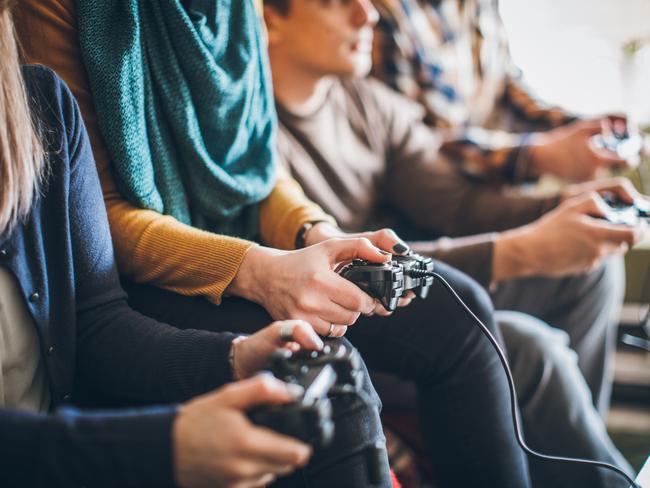
‘I WAS SCARED’: FORNITE PLAYERS PROBE KIDS FOR SENSITIVE DETAILS
The tech-savvy Borom family did their research before allowing 10-year-old Tobiasz to play Fortnite.
But even they were caught out when an adult started asking the young player inappropriate questions, something Tobiasz said left him “scared”.
“Someone asked me for how old I was and where I lived and when I got off Mum looked at my messages and saw him getting mad, asking me questions,” the grade five student said.
“It is very dangerous. Some people say they can find you straight away.”
His mother, law academic Maya Borom, said the household immediately introduced new rules about Fortnite.
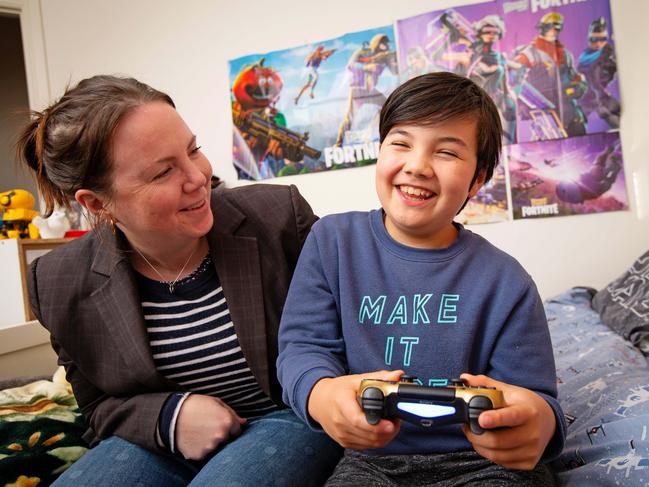
The precocious young gamer is now no longer allowed to talk to adult strangers in the game.
He instead keeps any talk to just his school friends and children he’s befriended within Fortnite.
“We’ve got strong rules that he must know who he’s talking to,” Ms Borom said.
“And if people ask him what his real name is, where he lives, or what school he goes to, he has to hop off and he’s not allowed to deal with those people,”
The new rules come in addition to existing household requirements about finishing homework, and completing chores, before booting up the PlayStation 4.
Ms Borom said Fortnite still presented tricky challenges as Tobiasz and his friends could get overexcited or even angry within the game.
He was often asked to disconnect headphones if play became heated.
But she said the problem-solving, teamwork, and building elements of Fortnite were positive.
“For us, it’s about moderating how much time he plays, what’s going on in the game, and reminding him he is in a game and he can’t spent all his time on it,” she said.
“He’s 10 so sometimes he and his friends will go to school on a Monday upset over something that happened on the weekend.
“As long as they all smooth it out and problem solve together, I’m happy for that to continue.”
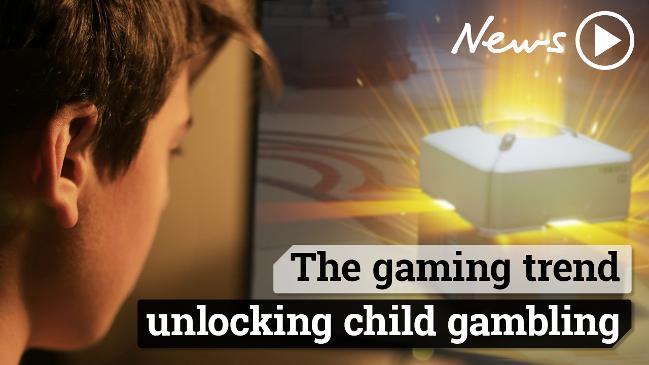
‘FORNITE WILL NEVER BE WELCOME BACK IN OUR HOUSE’
The Davidsons worked out how to end the constant Fortnite fights in their home … but not everyone appreciated the solution.
Frustrated by months of tantrums, rule-breaking, and power struggles over the game, father Chad Davidson threw their new Xbox console in the pool.
There was no reviving it.
“We got it at Christmas, and it was in the pool by Easter,” mother and education worker Petrina Davidson said.
“Our eldest even jumped into the pool to salvage it. But Fortnite will never be welcome back into our house.”
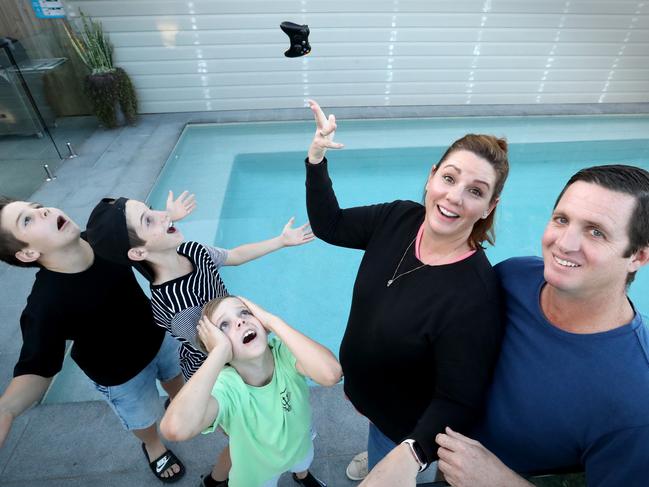
The family with three boys, Lincoln, 12, Dallas, 10, and Aiden, 9, got an Xbox One as a joint Christmas present. The boys were allowed to play Fortnite for one hour each on the weekend.
Despite the sensible rules, the game quickly created big problems for the family.
“When we introduced Fortnite, it created World War 3 in our house, it was ridiculous,” Ms Davidson said.
“We would have to hide the power pack because the boys would get up at 5 in the morning and hunt for it. We’d even it lock it in my husband’s car.”
The weekend gameplay affected the boys’ sleeping patterns, she said, led to constant fights over who would be allowed to play first, and tantrums over game bans.
It even impacted family dinners as the kids ignored calls to the table in favour of another 20 minutes in the game.
That’s when the Xbox took an unexpected “swim” and Ms Davidson said she had no regrets about the outcome.
“Since we’ve gotten rid of it, it was like our eldest was detoxing for a couple of days,” she said. “After that it was back into normality. It made a big change.”
The three boys still bicker, she said, but now it’s less serious and more likely to be over football rather than video games.
The family has no plans to reintroduce a games console to household, and recommends other parents avoid them.
“I just think don’t introduce it,” she said. “Listen to me – don’t do it!”


